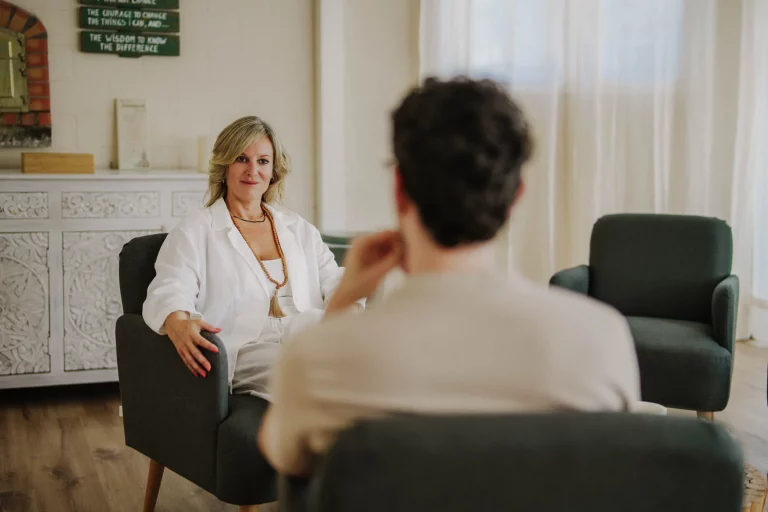
Have you ever felt like you’re standing still while life moves on without you? You want things to change (you might even need things to change) but somehow, you can’t take that first step. You promise yourself you’ll figure it out alone. You wait for the “right moment” or the “stronger version” of yourself to appear.
Here’s the truth no one likes to admit: the right moment rarely comes on its own. Waiting keeps you stuck. Asking for help is what gets you moving.
It sounds simple. But if you’ve ever tried, you know, it’s one of the hardest things you’ll ever do. And also, one of the bravest.
Why Asking for Help Feels So Hard?
In our culture, self-reliance is seen as a badge of honor. We grow up hearing messages like “Be strong,” “Don’t depend on anyone,” and “Handle your own problems.”
These ideas can make asking for help feel like breaking the rules. For those facing addiction, trauma, or emotional struggles, the challenge is even greater. Common thoughts include:
- Shame. If I admit I need help, I’ll look weak or broken.
- Fear of judgment. People will see me differently or think less of me.
- Illusion of control. I can stop or change whenever I want.
- Past disappointments. I’ve asked before and it didn’t work.
- Fear of the unknown. What will recovery look like? Will I still be “me”?
Each of these fears can be powerful enough to keep you in silence. But silence is a heavy burden, and it keeps you exactly where you are.
Vulnerability: The Heart of Courage
One of the biggest misconceptions about vulnerability is that it equals weakness. The reality is the exact opposite. Vulnerability is courage in action.
To say, I’m struggling is to allow yourself to be seen without masks or excuses. That’s not weakness, that’s bravery. Vulnerability is the doorway to connection, healing, and growth. Without it, real change is impossible.
We’ve seen it countless times in therapy: the moment someone dares to open up, something shifts. The weight begins to lift. They realize they are no longer alone.
There is no courage without vulnerability. The two are inseparable.

Strength, Redefined
We often imagine strength as keeping everything together, never showing cracks, never admitting defeat. But that’s not real strength, that’s performance.
Real strength is knowing your limits and being willing to reach beyond them. It’s trusting someone enough to let them see the truth.
The paradox is this: the moment you stop trying to carry it all by yourself, you actually become stronger, because now, you have support.
Breaking the Silence
Silence isolates. It convinces you that you’re the only one who feels this way. It feeds the belief that no one could possibly understand.
The first step in asking for help is breaking that silence—both in your own mind and with others. And it doesn’t have to be dramatic. Sometimes, it starts with the simplest words:
- “I’m struggling right now.”
- “I need someone to listen.”
- “Can you help me?”
These may seem small, but they can change everything. Speaking your truth opens the door to connection and possibility.
Practical Ways to Take the First Step
If asking for help feels overwhelming, try these gentle strategies:
- Choose your person. Identify someone you trust who can listen without judgment.
- Start small. You don’t need to tell your whole story right away. Begin with how you’re feeling today.
- Be clear about what you need. Whether it’s emotional support, guidance, or help finding professional resources.
- Write it down first. If speaking is too hard, send a message or letter.
- Use professional resources. Hotlines, support groups, and therapists are there for you.
What Changes When You Ask for Help
Something powerful happens the moment you ask for help:
- You prove to yourself you’re not alone.
- You give yourself permission to be supported.
- You move from thinking about change to actually creating it.
Recovery, whether from addiction, grief, or burnout, rarely happens in isolation. It’s built in moments of connection, courage, and trust.
If You’re Not Ready Yet
If you’re reading this and thinking, I can’t do that right now, that’s okay. Even recognizing that you might need help someday is a step toward change.
When you are ready, remember:
- Asking for help is not weakness, it’s strength in motion.
- Vulnerability is where courage is born.
- You deserve to be supported, no matter where you are in your journey.
One day, maybe sooner than you think, you’ll speak the words that start everything: I need help. And that moment could change your life.
📞 If you or a loved one is struggling with addiction, mental health and/or eating disorders, reach out today. Contact us today for an obligation-free confidential consultation. We’re here 24/7h available to help you recover and rebuild.






